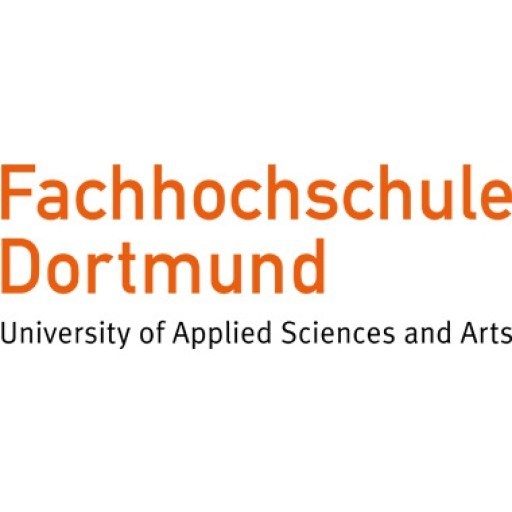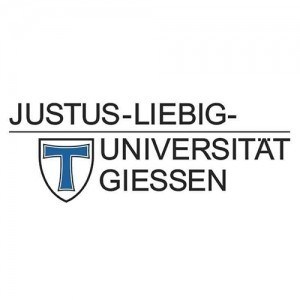The Embedded Systems for Mechatronics programme at Dortmund University of Applied Sciences and Arts is a comprehensive and interdisciplinary degree designed to prepare students for the rapidly evolving field of embedded systems technology within mechatronic applications. This programme aims to equip students with a solid foundation in electronics, computer science, and mechanical engineering, enabling them to develop, implement, and optimize embedded systems that are integral to modern automation, robotics, automotive, and industrial processes.
Throughout the course, students gain hands-on experience with microcontrollers, embedded hardware design, real-time operating systems, and programming languages such as C and C++. They explore the integration of electronic components and mechanical systems to create efficient, reliable, and innovative solutions for a variety of industry sectors. The curriculum emphasizes practical skills alongside theoretical knowledge, encouraging students to undertake laboratory projects, internships, and collaboration with industry partners to solve real-world challenges.
The programme also covers essential topics such as signal processing, sensor technology, communication protocols, and system security, which are critical for developing intelligent embedded systems. Students learn about the design lifecycle, from initial conception and hardware/software development to testing and deployment, ensuring they are well-prepared for the demands of the professional environment.
Graduates of the Embedded Systems for Mechatronics programme are highly sought after in fields including automation technology, automotive engineering, robotics, and manufacturing. They can pursue careers as embedded systems engineers, automation specialists, control systems developers, or project managers, contributing to innovation and technological advancement within their respective industries. With access to state-of-the-art laboratories and modern teaching methods, students are encouraged to be proactive and innovative, fostering skills that will serve them throughout their careers in the dynamic world of mechatronics and embedded systems.
1.Semester
- Mathematics for Signal & Controls
- Distributed and Parallel Systems
- Embedded Soft-ware Engineering
- Requirements Engineering
- Scientific & Trans-versal Skills
2. Semester
- Mechatronic Systems Engineering
- Microelectronics & HW/SWCo-Design
- R&D Project Management
- Signals and Control Systems
- Elective
3. Semester
- Elective
- Elective
- Research Project(Thesis)
4. Semester
- Master Thesisand Colloquium
Required degree
Bachelor of Science or Bachelor of Engineering (at least 180 ECTS), Diplom-Engi-neerin the field of Computer Science, Electrical Engineering or InformationTech-nology; or foreign equivalent with a final grade or mark of at least „good“ (2.5).It must have included relevant competence in the areas of Software Engineering, ControlEngineering, Signal Processing and Systems Engineering (cf. Study and examination regulationon www.fh-dortmund.de/pruefungsordnung).Course programmes at foreign universities must include a final thesis comparable to thecourse programmes at German universities with regard to the minimum qualityrequirements.An expertcommittee of the Master Course Embedded Systems for Mechatronics will check if theserequirements are achieved.
Proof of English language skills
Applicants need to proof their language skills in English, certified by a Test of English as a foreign language (TOEFL)not older than two years at the time of ap-plication. There are twoformats for the TOEFL: internet-based TOEFL with a score of 90 or TOEFL ITP (Institutional Testing Programm)with a score of 550. Also ac-cepted are other tests, e.g. IELTS with ascore of 6.5 or equivalents. In excep-tional cases the evidence can be submitted by meansof an equivalent certificate or test results demonstrating the relevant minimumrequirements (equivalent to C1 of the Common European Framework of Reference for Languages (CEFR )). The Expert Committee decides whether equivalence is demonstrated.
Pre-Check Form
In order to be able to verify before the application whether you meet the require-ments for admission to the programme all applicants (EU, German, non-EU) are highly recommended to send us their documents for a pre-check to service-esm@fh-dortmund.de
The financing of the Embedded Systems for Mechatronics program at Dortmund University of Applied Sciences and Arts is primarily composed of several funding options available to students. The most common form of financing for students enrolled in this program is German public funding, which includes scholarships, grants, and student loans provided by government agencies or private organizations. These funds aim to support students throughout their studies by covering tuition fees, living expenses, and study materials. Additionally, the university participates in national and regional scholarship programs designed to promote technical education and innovation, enabling qualified students to receive financial assistance based on merit or financial need.
Furthermore, students may have access to financial support through the German Federal Student Assistance (BAföG), which offers low-interest loans and grants to eligible students, helping to reduce the financial burden during their studies. International students, if applicable, can also explore external scholarship opportunities offered by their home countries or international organizations. Many students also engage in part-time employment during their studies to supplement their income, with the university providing resources and guidance on available job opportunities and work regulations for students.
Dortmund University of Applied Sciences and Arts also encourages industry partnerships and internship programs that not only provide practical experience but sometimes include stipends or financial compensation. These arrangements help students finance their studies while gaining valuable hands-on experience in embedded systems development, mechatronics, and related fields. Moreover, the university offers advising services to assist students in planning their financial strategy and exploring various funding sources.
In summary, the financial support system for students in the Embedded Systems for Mechatronics program is multifaceted, including public funding, scholarships, student loans, part-time jobs, and industry-supported internships. Students are advised to thoroughly research and apply for all relevant funding opportunities to help manage the costs associated with their studies at Dortmund University of Applied Sciences and Arts.
The Embedded Systems for Mechatronics program at Dortmund University of Applied Sciences and Arts is designed to provide students with comprehensive knowledge and practical skills in the field of embedded systems within the context of mechatronics. This interdisciplinary program combines principles from electrical engineering, computer science, and mechanical engineering to prepare graduates for diverse careers in automation, robotics, vehicle technology, and industrial processes. The curriculum emphasizes hands-on project work, fostering an understanding of hardware and software integration, real-time operating systems, sensor and actuator technology, and communication protocols. Students learn to develop, test, and implement embedded applications that are crucial to modern automated and mechatronic systems. The program also covers topics such as digital signal processing, microcontroller programming, FPGA design, and system security, ensuring a well-rounded skill set suitable for the evolving technological landscape. Practical components include laboratory work, industry internships, and collaborative projects with companies, enabling students to gain valuable industry experience and network with potential employers. The program aims to produce graduates who are capable of designing innovative embedded solutions, troubleshooting complex systems, and adapting to rapidly changing technological demands. Upon completion, students are prepared for roles in research, development, and engineering departments within various industrial sectors, especially those focused on automation, automotive technology, and smart devices. The program's structure aligns with current industry standards and emerging trends, ensuring that graduates are well-equipped for future technological advancements.









